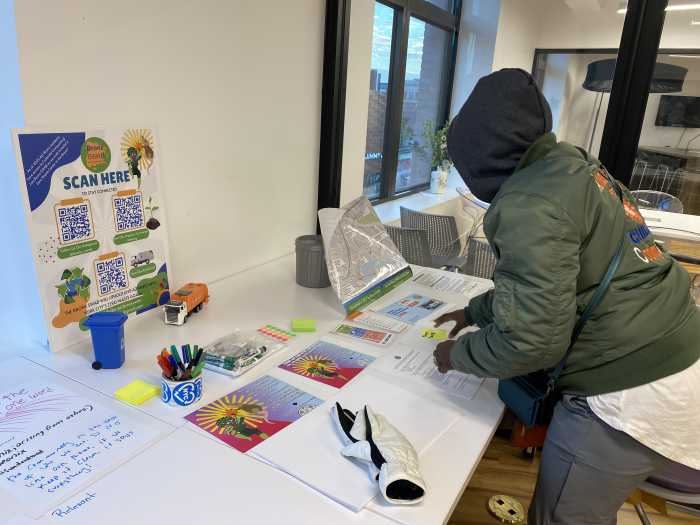Bart Sher’s staging sinks Met Offenbach
The Met’s “Contes d’Hoffmann” (December 7) proved a major disappointment, though not for the reason many cited — the virtual disappearance of the originally announced star quartet, prime players in Peter Gelb’s future plans (Rolando Villazon, Anna Netrebko, Rene Pape, and Elina Garanca). That was unfortunate, though Olympia always seemed a dubious prospect for Netrebko at this point.
The main failings, however, were Bart Sher’s cluttered, unilluminating production and the lack of musical initiative shown in presenting — despite the accumulated research of recent years — the same old corrupt “Hoffmann” edition the Met has been giving since 1992, when the additional Nicklausse arias were added. James Levine’s recent back problems cannot be blamed. Such decisions are made in advance; alas, they reflect the music director’s limited interest in post-1970 scholarship and musical integrity as surely as does the continuing presentation of “Don Carlos” and “Les vepres siciliennes” in Italian.
One can’t say Levine conducted badly, but he worked without much variety of phrase or sense of belief in the piece as anything more than light entertainment. Again, as music director and a keen-eared musician, how could Levine permit the almost universally poor or barely adequate French pronunciation? Best in this regard was Alan Oke, who otherwise mugged the Servants in British “panto” fashion, every line straight out to the audience.
Sher’s concept began from the purported evocation of Kafka in Villazon’s appearance, which of course vanished when Villazon did. From Kafka, Sher’s interviews and program essay proceeded to themes of alienation and Jewishness and a supposed alienation that Offenbach must have felt as a convert in France that in turn must have led to his choosing these stories of unachieved love.
In sum, utter nonsense.
Little of this appeared on the stage, though in the final couplet of the “Legend” eight (!) dancing Kleinzachs seemingly imitated yeshiva boys with prayer shawls and Hoffmann repeated the gesture in the Epilogue. As to Kafka, many of Catherine Zuber’s handsome costumes suggested the Weimar era. The insubstantial sets — unpleasing work by the distinguished Michael Yeargen — are clearly aimed as HD filming backgrounds. Met performances have ceased to exist fully as discrete theatrical events!
At all times, save in the Antonia act, the stage was littered with, and the principal singers’ actions obscured by, dozens of supernumeraries and dancers — hey, look, five (!) whirling couples doubling as Hoffmann and Olympia! — as if Sher had no faith in the singers and excellent chorus to deliver dramatic action. How does one reconcile the magical ensembles he has produced on Broadway with the near-amateurish direction here?
Joseph Calleja displayed bravery — pray, not foolhardiness — in agreeing to tackle the murderous title role for the first time in such an exposed context. He worked very hard, straining on some high phrases, transposing others down, and clearly tired by the tenor marathon the Giulietta act represents. Yet he made it through, with his strikingly individual sound (Ivan Kozlovsky with rhythm!) and a nicely Gallic dynamic palate, even if his pronunciation was amongst the worst offenders.
The only other starry sound came from Netrebko, directed to be unduly melodramatic — she collapsed stagily, pawing sheet music off of her piano — but a positive presence. Sher utterly wasted her talents as Stella. Her voice is already too large for this music’s graces and pitch suffered sometimes, but she made some lovely arcs of sound, though the loveliness did not extend to her high C sharp or D. Netrebko would have made a luscious Giulietta in place of Ekaterina Gubanova, in no way a bad singer but miscast here as to style, tessitura, and personality. Kathleen Kim wowed the crowd as Olympia always does; she was fine, though nothing truly sensational.
In 1992, Susanne Mentzer took Nicklausse’s extra arias and stole the entire show. Sher had Kate Lindsey, a pretty, telegenic, thin singer in the “Gelb silhouette” mode, stalk the stage all night, at every turn in league with Alan Held’s strongly vocalized if not very scary villains, but Lindsey — a fine Cherubino — as yet lacks the vocal stature or star quality for the assignment. Of the small roles, only Wendy White’s maternal voice impressed, though Sher’s staging for Offenbach’s fantastic, seemingly sure-fire trio failed completely to achieve any visual or symbolic tension.
Philadelphia’s Chamber Music Society somehow manages to present impressive chamber, piano, and vocal series not consisting solely of the Usual Suspects favored by New York’s equivalent presenters — at less than half the ticket cost. On December 1, the intimate, classy chamber of the American Philosophical Society played host to a splendid recital by Colin Balzer, a Canadian light lyric tenor based in Germany — though he’s appeared to good advantage in baroque opera at the Boston Early Music Festival.
Balzer will not be singing Puccini or at your neighborhood HD palace any day soon. Rather, he produces a sound evoking modern deities Anthony Rolfe Johnson and Richard Croft — clear, floaty, but with a solid baritonal underpinning. His technique permits long lines, seemingly perfect intonation, and — as the melismatic passages in the Britten portion of the evening demonstrated — wonderful agility. A first half alternating Haydn and unhackneyed Schubert songs showed excellent, expressive diction in both English and German and a cultivated style, plus a kind of 30-something boy-next-door charm.
His pianist, Erica Switzer, was pleasant of tone and collaborative, though not quite on Balzer’s level in preparation and accuracy.
After intermission, one of Britten’s finest works, the Hardy-set “Winter Words,” was traversed with sensitivity and understanding; Balzer ended with, including encores, seven Britten Folk Song settings, alternating wry humor with abject heartbreak. One could have heard a pin drop — until the prolonged ovations.
David Shengold (shengold@yahoo.com) writes about opera for many venues.

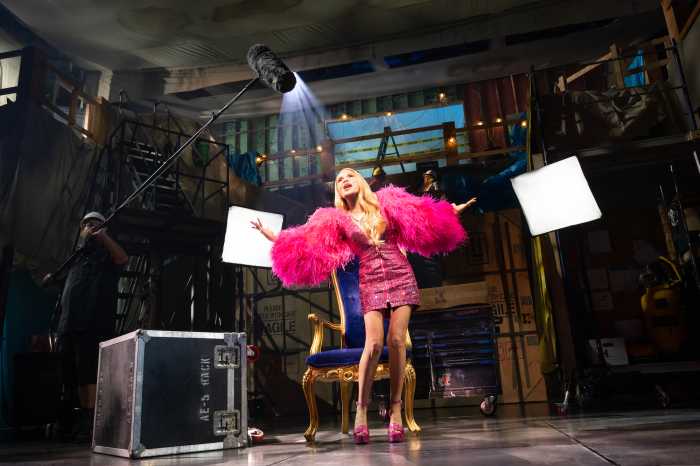
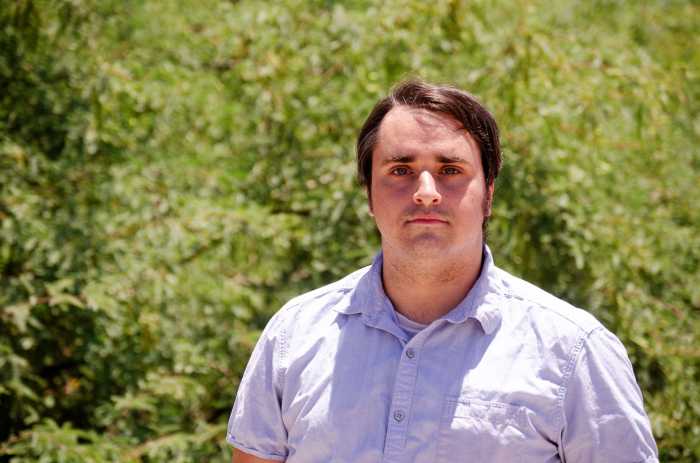
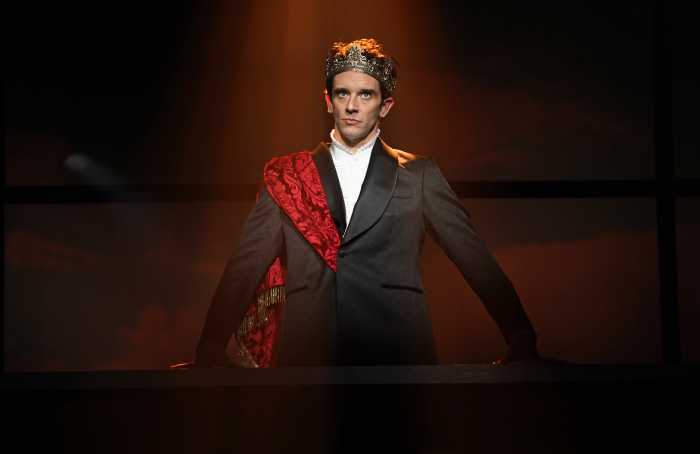
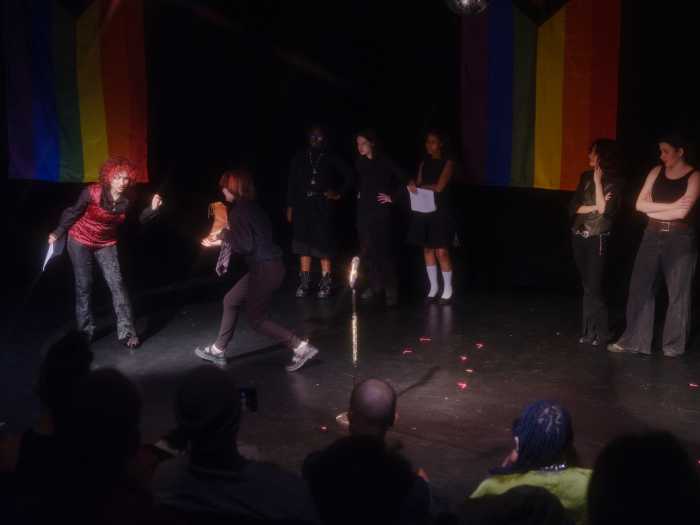












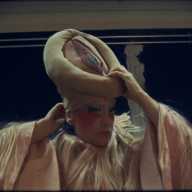















![Fresh Vibes Market_1[1]](https://www.brooklynpaper.com/wp-content/uploads/2025/12/Fresh-Vibes-Market_11.jpg?quality=51&w=700)
